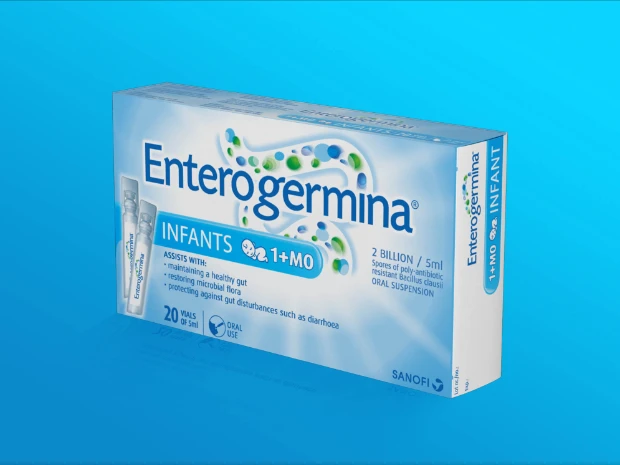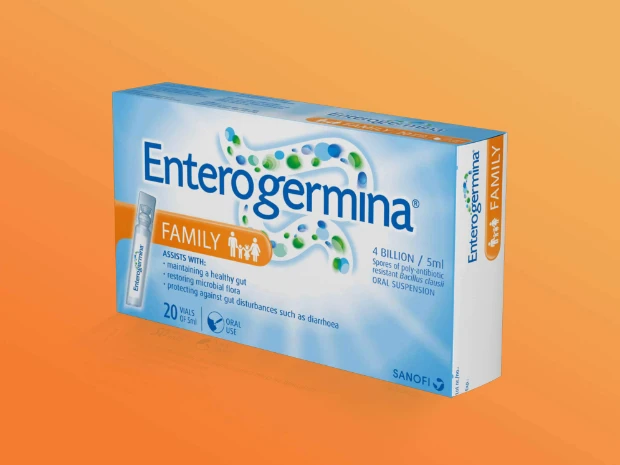Antibiotics & Bacterial Flora
Few people are aware of just how destructive antibiotics can be to the healthy levels of bacterial flora inside the body. 1 Here’s what you need to know about it.
Bacterial Flora are Vital to Tissues and Organs
The skin, intestines, urogenital system and respiratory system all depend on healthy levels of bacterial flora in order to function effectively. 2
Antibiotics Alter Microbial Populations
This makes the body more susceptible to other illnesses, including viruses and various digestive conditions. 3,4
It’s Difficult for the Body to Rebalance Bacterial Flora
This is especially true for those good bacteria wiped out by antibiotics. While not impossible, it takes time, and this leaves the gut vulnerable to digestive complications in the meantime. 5
How to Recognise Antibiotic-Related Gut Disorders
While antibiotics may also have stomach-related side effects, our area of interest is mainly the intestines.
Diarrhoea
Antibiotics may significantly reduce the colonies of good bacteria in your gut, leaving your gastrointestinal system weak. 6
Flatulence & Cramping
Long periods of antibiotic usage may cause severe inflammation of the colon, resulting in bloating and abdominal pain. 7
Nausea
Nausea is a common symptom of an imbalance in the intestinal bacteria; people with vulnerable digestive tummies are also prone to vomiting. 8
Antibiotic Effects: Tips & Remedies
The negative effects of antibiotics often catch people off guard. These tips can help you restore the balance to your body once the symptoms mentioned above have set in.
Maintain a high-fibre diet and also eat fermented foods
These foods will have a nourishing effect on the affected gut, helping it to rebalance itself faster. 9
Water, water and more water
If diarrhoea has occurred as a result of antibiotics, you may be at risk for dehydration. Drink plenty of water throughout the day and consider oral rehydration therapy should the diarrhoea worsen. 10
Put a small piece of ginger...
...between your cheek and lower gum. This will help to keep nausea at bay, and you may be able to get through your day in a normal manner. 11

How to Prevent Antibiotics from Affecting the Gut
It is simple to reduce the effects of antibiotics on the gut. But many people only think of it when it's too late.
Frequently Asked Questions
Antibiotics can really complicate things from the inside out. You probably have a few questions for us. Check out our FAQ.
-
Antibiotics fight off bacterial infections, but in doing so they may damage the gut microbiota that also plays a role in your immune system. This could leave you vulnerable to some harmful bacteria and viruses in the future. 13
-
Yes, very much so. They particularly affect the microbial populations in the gut, also known as the intestinal flora, creating an opportunity for digestive disorders to negatively affect your health. 14
-
Besides killing harmful, or pathogenic, bacteria, antibiotics also reduce the good bacteria of the intestinal flora, while probiotics work to restore them. 3
-
Taking a probiotic during antibiotic treatment can reduce the risk of diarrhoea as a side effect of an antibiotic in the flora. Taking a probiotic after a course of antibiotics will help restore any good bacteria that was lost during treatment. 3, 15
Our Products
Entrogermina's range of products works with the body to deliver effective solutions to various digestive conditions - the key to internal balance.

How can Bacillus clausii help you solve your gut problems?
Bacillus clausii is a type of spore-forming good bacteria that works to rebalance the flora in your intestine. When consumed regularly, it can help to manage different conditions associated with gut disorders.
Stay Informed
Learn how different daily triggers could be contributing to intestinal disorders, and how a good probiotic could be the ally you never knew you needed!
- What to know about antibiotics, Medical News Today, January 2019 [quoted June 2021] https://www.medicalnewstoday.com/articles/10278
- Medical Microbiology. 4th edition, NCBI, [quoted June 2021] https:www.ncbi.nim.nih.gov/books/NBK7617/
- Do Antibiotics Weaken Your Immune System? + 3 Ways To Help, mbgHealth, July 2020 [quoted June 2021] https://www.mindbodygreen.com/articles/do-antibiotics-weaken-the-Immune-system
- Antibiotics weaken flu defences in the lung, Science Daily, July 2019 [quoted June 2021] https://www.sciencedaily.com/releases/2019/07/190702112834.html
- How Long Does It Take For Gut Flora To Restore After Antibiotics? Healthpath, March 2020 [quoted June 2021] https://healthpath.com/gut-health/how-long-restore-gut-health-after-antibiotics/
- After Antibiotics: How To Restore Gut Flora And Reset Your Gut, Atlas, October 2020, [quoted June 2021] https://atlasblomed.com/blog/probiotics-after-antibiotics/
- What are the side effects of antibiotics? Medical News Today, October 2018, [quoted June 2021] https://mww.medicalnewstoday.com/articles/322850#rare-and-more-severe-side-effects
- What Causes Dysbiosis and How Is It Treated?, Healthline, February 2019 [quoted June 2021] https://mww.healthline.comvhealth/digestivehealth/dysbiosis#symptoms
- What You Should Eat During and After Antibiotics, Healthline, October 2017 [quoted June 2021] https://www.healthline.com/nutrition/what-to-eat-antibiotics
- What You Need to Know About Antibiotics and Diarrhea, Healthline, November 2019 [quoted June 2021] httpsi/www.healthline.com/health/antibiotics-diarrhea
- Ginger, WebMD, August 2020 [quoted June 2021] https://www.webmd.com/vitamins-and-supplements/ginger-uses-and-risks
- Prebiotics vs. Probiotics: What's the Difference?; Healthline, May 2017 [quoted June 2021] https://www.healthline.com/health/prebioticsvs-probiatics
- The effects of antibiotics on the microbiome throughout development and alternative approaches for therapeutic modulation, PMC, April 2016 [quoted June 2021] https://www.ncbi.nim.nih.gov/pmc/articles/PMC4831151/
- Disruption of the Gut Ecosystem by Antibiotics, PMC, November 2017 [quoted June 2021] https://wmw.ncbi.nim.nih.gov/pme/articles/PMC5725362/
- How to Prevent Diarrhea While You Take Antibiotics; HealthEssentials, [quoted June 2021] https://health.clevelandclinic.org/how-to:prevent-diarrhea-while-you-take-antibiotics/








